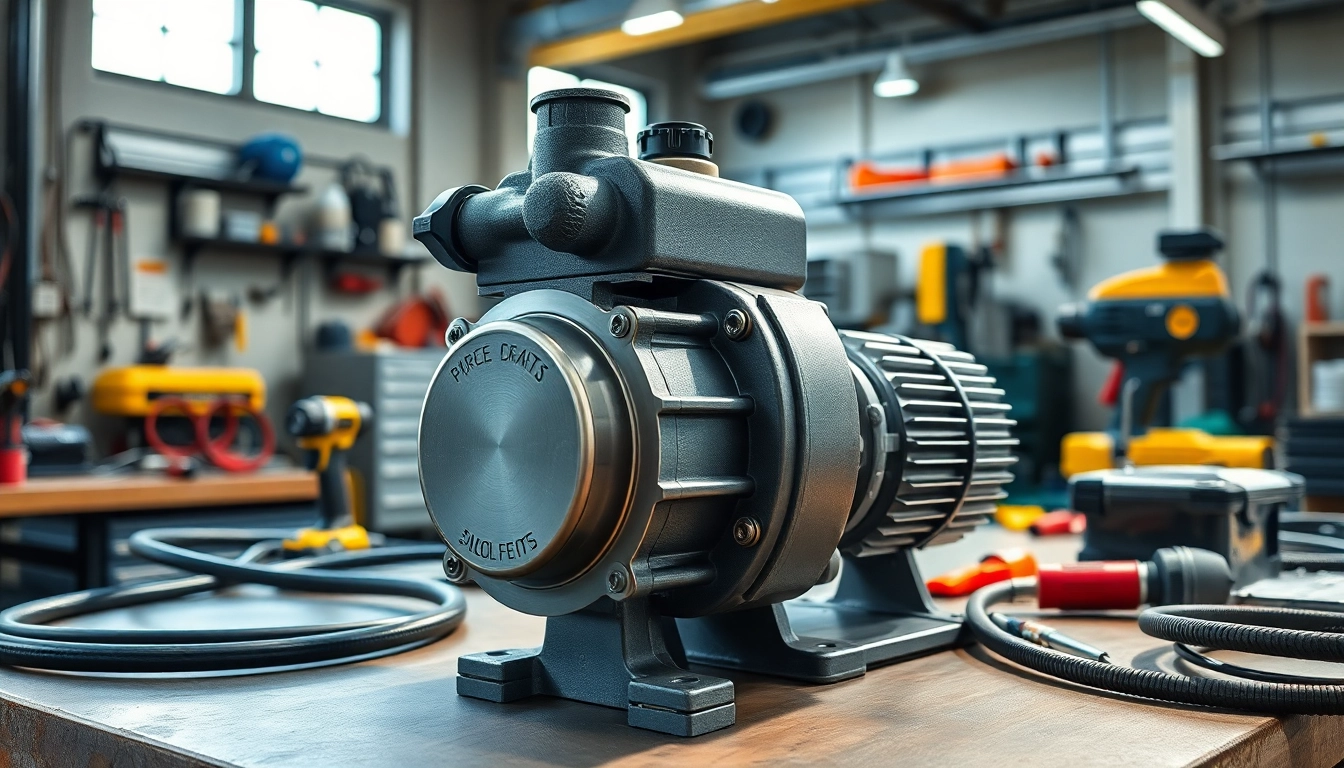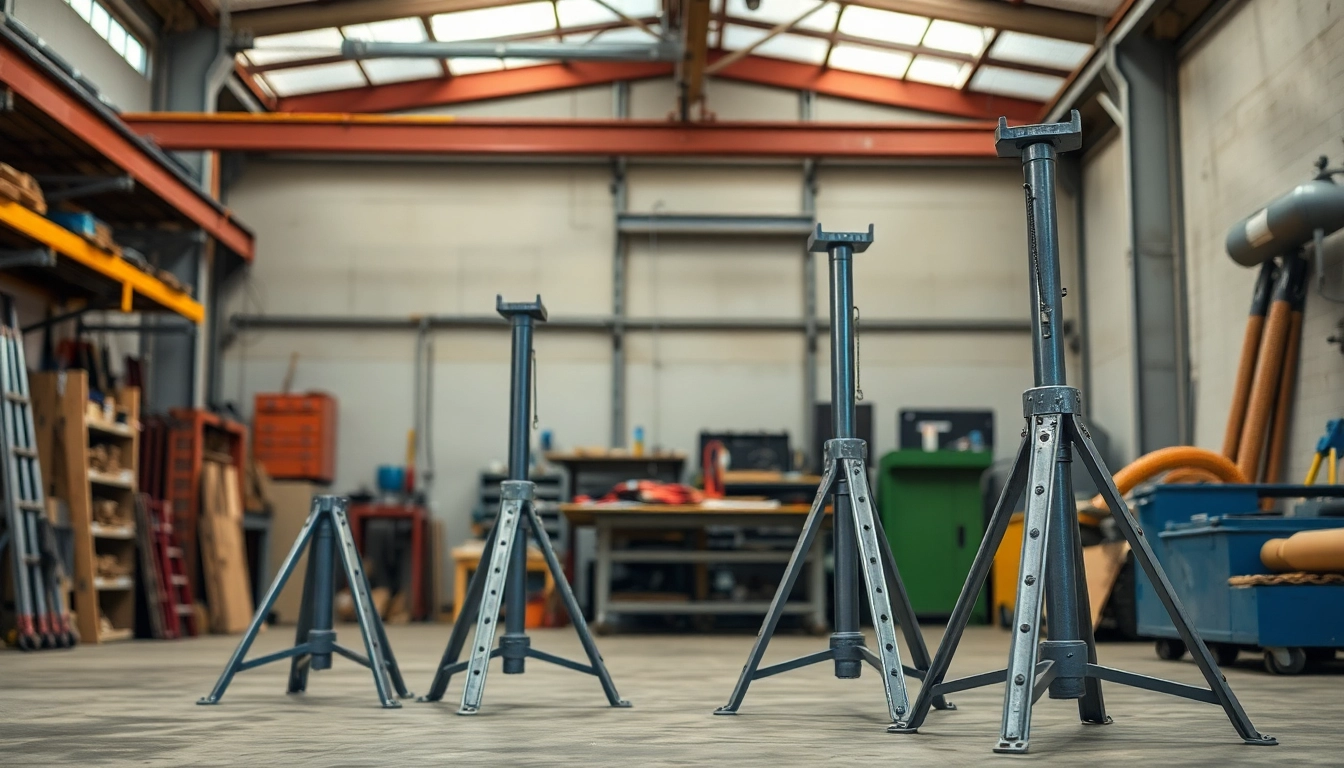Understanding Diesel Fuel Heaters
What is a Diesel Fuel Heater?
A diesel fuel heater is a crucial component designed to raise the temperature of diesel fuel before it enters the engine or a heating system. These heaters are particularly essential in colder climates where temperatures can drop to levels that cause diesel fuel to gel, adversely affecting engine performance and fuel delivery. By preventing gelling, diesel fuel heaters facilitate smooth engine starts, efficient combustion, and overall performance reliability.
Essentially, a diesel fuel heater increases the fuel temperature through various mechanisms, which ultimately helps in ensuring that fuel flows freely and maintains its efficacy during cold weather. This technology is critical for vehicles like trucks, boats, and machinery that operate in harsh environments.
How Diesel Fuel Heaters Work
Diesel fuel heaters generally operate by transferring heat to the fuel through either a direct or indirect heating method. In direct systems, the heater is often integrated into the fuel tank or the fuel lines. This method quickly raises the temperature of the fuel as it travels to the engine. Indirect systems, on the other hand, utilize the engine’s waste heat or electrical resistance to warm the fuel before it reaches the engine.
The operation typically involves a thermostat that monitors fuel temperature and adjusts heating as needed, ensuring that the fuel is kept at optimum temperatures for combustion. This intelligent management prevents overheating and protects components from damage that can occur due to excessive heat.
Common Applications for Diesel Fuel Heaters
Diesel fuel heaters are utilized across various sectors and applications. Here are some common settings:
- Transportation: Trucks and shipping vessels often rely on diesel fuel heaters to ensure trucks can start in cold weather and to enhance fuel efficiency.
- Construction Equipment: Heavy machinery used in construction relies on diesel fuel heaters for uninterrupted operation during winter months.
- Agricultural Equipment: Tractors and harvesters benefit from the quick-start capabilities provided by these heaters, particularly in cold climates.
- Back-up Generators: Many businesses install diesel fuel heaters in their generator systems to ensure reliable operation during power outages in winter.
Benefits of Using a Diesel Fuel Heater
Improved Cold Weather Performance
One of the most significant advantages of using a diesel fuel heater is the improvement in cold weather performance. Conventional diesel engines can face challenges when starting in frigid conditions, as the fuel tends to thicken and gel. Diesel fuel heaters effectively mitigate these issues by maintaining a consistent temperature. When temperatures drop, the heater can ensure that the fuel remains usable, which is critical for operations in colder regions.
Prevention of Fuel Gelling
Fuel gelling is a common problem in extremely low temperatures, where paraffin wax within diesel fuel can solidify, leading to clogged fuel filters and lines. A diesel fuel heater prevents this gelling, ensuring that the fuel remains fluid and can flow smoothly to the engine, reducing maintenance issues and potential breakdowns. This reliability is especially vital for fleet operators and businesses that rely heavily on diesel-powered equipment.
Cost Efficiency and Longevity
Investing in a diesel fuel heater can yield significant long-term savings. First, the heater enhances fuel efficiency by allowing for optimal combustion temperatures, leading to better mileage. Additionally, by preventing fuel gelling, businesses can save on costly repairs and maintenance typically associated with winter weather failures. Furthermore, the longevity of the engine can be increased since it operates in ideal conditions, reducing wear and tear on engine components.
Types of Diesel Fuel Heaters
Electric vs. Fuel-Heated Options
When considering diesel fuel heaters, users typically choose between electric and fuel-heated options:
- Electric Diesel Fuel Heaters: These heaters utilize electrical resistance to warm the fuel. They are generally easier to install and can be controlled more precisely. Electric heaters tend to be more effective for short-term use and are ideal for smaller equipment or vehicles.
- Fuel-Heated Diesel Fuel Heaters: These systems utilize the heat generated by combustion within the engine or a separate heating source. They are often more effective for long-term and larger operations. Fuel-heated systems can warm larger volumes of fuel and provide a more consistent temperature but may require more complex installation.
In-Line Diesel Fuel Heaters
In-line diesel fuel heaters are installed directly in the fuel line and preheat the fuel before it reaches the engine. They are designed for rapid response and can typically thaw frozen fuel in a matter of minutes. These heaters are compact and efficient, making them a popular choice for both commercial and personal use in cold environments. They also act as a safeguard against fuel gelling, ensuring that operations remain uninterrupted.
Portable Diesel Fuel Heaters
Portable diesel fuel heaters offer flexibility and versatility for various applications. These heaters are designed for use in locations where fixed heating systems are not feasible. Ideal for campers, construction sites, and remote areas, portable heaters provide on-demand heat and can quickly warm fuel as needed, making them indispensable for users who require mobility.
Installation and Maintenance
Professional Installation vs. DIY
Installing a diesel fuel heater can be complex, depending on the type of system chosen. While DIY installations are possible for those with technical knowledge, professional installation is often recommended to ensure optimal performance and safety. Hiring an experienced technician can mitigate the risk of improper installation, which could lead to performance issues or accidents. Factors to consider include the type of vehicle or equipment, the existing fuel system, and the specific requirements of the heater itself.
Maintenance Tips for Longevity
Regular maintenance is essential for extending the life of a diesel fuel heater. Some key points include:
- Regular Inspections: Check the heater system for signs of wear, corrosion, or leaks regularly. Ensuring all components are functioning correctly prevents future problems.
- Cleaning Filters: Replace or clean fuel filters to avoid clogs and improve efficiency. Dirty filters can reduce fuel flow and increase wear on the heating system.
- Check the Thermostat: Monitor the thermostat’s functionality to ensure that the heater is turning on and off as required.
Common Issues and Troubleshooting
Even the best diesel fuel heaters may encounter issues. Here are some common problems and their solutions:
- No Heat Output: If the heater is not producing heat, check the power supply, connections, and ensure that the thermostat is functioning correctly.
- Fuel Leaks: Inspect all joints and connections for leaks and ensure that seals and gaskets are in good condition.
- Inefficient Heating: This can often be remedied by cleaning filters or checking for clogs in the heating system.
Choosing the Right Diesel Fuel Heater
Assessing Your Heating Needs
Choosing the right diesel fuel heater depends primarily on your specific heating needs. Consider factors such as the type of equipment or vehicle, the climate in which you operate, and how often you require heating. Understanding these needs will help you select a heater that provides adequate performance and reliability without unnecessary features that may add to the cost.
Features to Look For
When selecting a diesel fuel heater, consider the following features:
- Wattage: Ensure that the heater’s wattage is sufficient for your specific application.
- Size and Portability: Evaluate whether you need a compact in-line heater or a portable unit that can be easily moved.
- Safety Features: Look for heaters with built-in safety mechanisms such as automatic shut-off to prevent overheating.
- Control Options: Some heaters come with advanced control systems that allow for greater precision, especially beneficial in colder temperatures.
Comparing Brands and Models
There are numerous brands available in the market, each offering various models with unique features. Researching these brands, reading reviews, and assessing specifications will allow you to make an informed choice. Consider the reputation of the manufacturer, warranty offerings, and customer service when making your selection. Reliable brands often provide better long-term performance and customer support.



